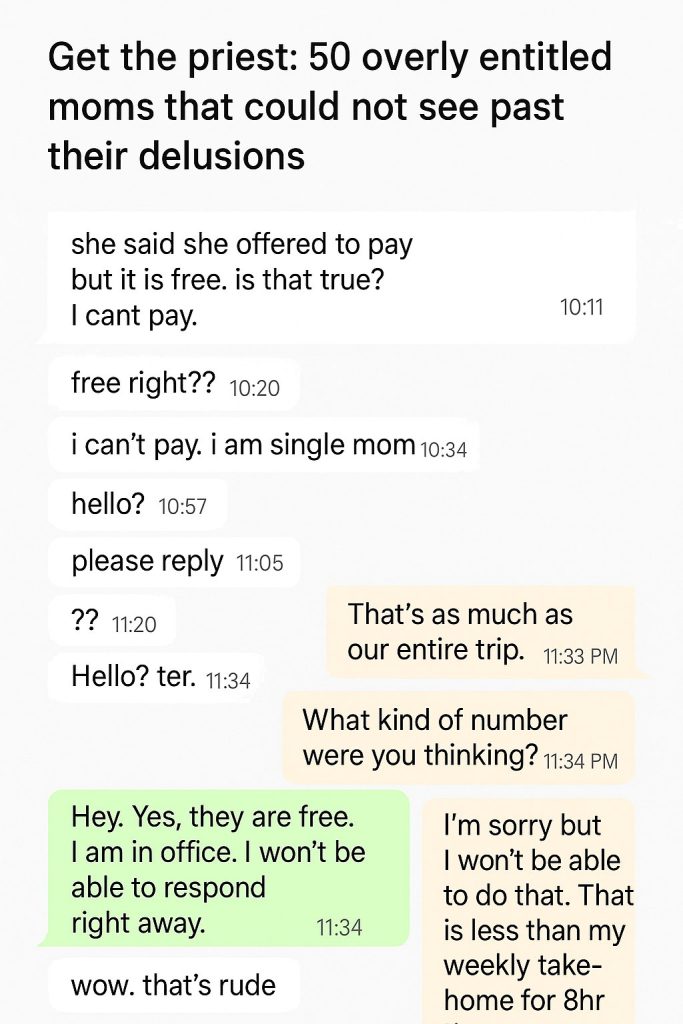In the ever-evolving landscape of internet culture, a new viral trend titled “Get the Priest” has captured widespread attention and sparked heated debate across social media platforms. The phenomenon centers around a widely shared post that catalogs 50 examples of mothers exhibiting extreme entitlement and seemingly delusional behavior, prompting both outrage and fascination among digital audiences.
The list, which began circulating earlier this year, highlights stories ranging from minor supermarket disputes to more extreme cases where entitled demands clash with community norms and common courtesy. The phrase “Get the Priest“—originating from one particularly dramatic viral video—has become a catchphrase symbolizing the public’s exasperation over what many see as unapologetic self-centeredness.
What makes this viral content especially compelling is the intersection of relatable parenting challenges and social outrage. The 50 profiles illustrate how some mothers, often feeling justified in their actions due to parental privileges, overstep social boundaries so noticeably that bystanders question their perspective.
Among the documented incidents, several stand out for their sheer audacity: a mother demanding preferential supermarket checkout treatment despite having a full cart, another confronting a teacher aggressively over a minor grading dispute, and various reports of entitlement at public events that disrupt the experience for others. Each case reflects a pattern of behaviors where the individuals’ perspectives seem disconnected from the norms shared by their communities.
The response across social media has been polarized. Many commentators laud the list as a humorous, if somewhat cynical, exposé of a growing societal problem—parents who cloak selfishness in a veil of necessity. User engagement numbers for posts sharing elements of the list have soared, making it a trending topic on several platforms.
Conversely, critics argue that the portrayal of these mothers often veers into unfair stereotyping, potentially fostering judgemental attitudes rather than empathy. Parenting experts and psychologists weighing in emphasize the importance of context—highlighting that heightened stress, lack of support, or mental health struggles can sometimes manifest in behaviors that seem entitled but stem from deeper issues.
Despite mixed reactions, the “Get the Priest” trend underscores a cultural moment where the public is keenly aware of social dynamics around entitlement, particularly in family settings. Digital commentators note that the viral story taps into broader conversations about respect, communal patience, and the limits of personal privilege in shared spaces.
Interestingly, the phrase “get the priest” itself has transcended the original incident to become shorthand online for calling out absurd or over-the-top claims of entitlement. This linguistic shift illustrates the power of viral storytelling to redefine language and social cues in contemporary discourse.
As the list continues to circulate with new submissions and discussions, one thing remains clear: the conversation about entitlement and parental behavior in public realms is far from over. Whether used as entertainment, social critique, or a springboard for deeper reflection, the “Get the Priest” phenomenon has firmly established itself as a cultural touchpoint in 2024’s digital dialogue.



